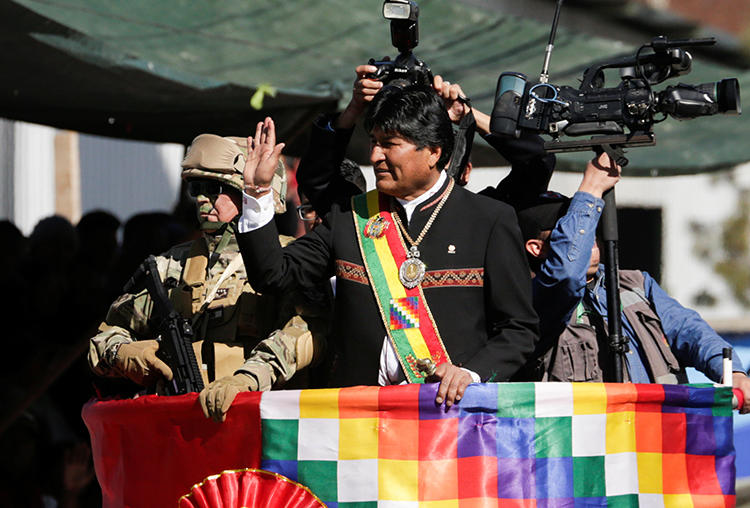Bogotá, September 17, 2019 — The Committee to Protect Journalists today condemned a decision by Bolivia’s Supreme Electoral Tribunal to restrict the dissemination of a public opinion poll, and urged authorities to allow journalists to report freely on elections.
On September 11, the tribunal issued a communiqué stating that a poll commissioned by the state-run Superior University of San Andrés violated funding regulations under Bolivia’s 2010 Electoral Law and should not be publicly disseminated. Under that law, any news organization that publishes a poll that has been banned by the tribunal can face fines based on each organization’s advertising rates, and can be prohibited from publishing future polls.
In addition, many outlets are afraid of alienating the tribunal, which controls state election advertising, an important source of income for many publications, Raúl Peñaranda, editor of the Brújula Digital news website, told CPJ via phone.
The poll showed President Evo Morales in a tight race ahead of next month’s presidential election, depicting him earning only 31.1 percent of the vote, which would trigger a run-off election, according to news reports.
“If Bolivia seeks to live up to its avowed respect for press freedom, its electoral laws should be reformed to allow news organizations to freely report all polling results,” said CPJ Central and South America Program Coordinator Natalie Southwick in New York. “If Bolivian authorities want to signal that the October 20 elections are fair and democratic, restricting the publication of a poll that shows a tight race for President Morales conveys the exact opposite.”
In its communiqué, the tribunal stated that the poll was produced with international financing, which it said was prohibited under Bolivia’s electoral regulations. However, the tribunal has allowed the publication of previous polls sponsored by international organizations that indicated Morales had stronger support, according to reports.
Nearly all Bolivian outlets have declined to publish the poll out of fear of fines and legal harassment, Peñaranda told CPJ. He said that Brújula Digital has not faced pushback following its publication of the poll on September 11, which he attributed to the fact that Brújula Digital is registered as a nongovernmental organization, and is therefore subject to different regulations.
In a protest letter sent to the tribunal, Bolivia’s National Press Association called the action censorship and said it violated the rights of Bolivian citizens to be informed. The Your Vote Counts website, run by the University of San Andrés and the sponsors of the poll, can no longer be opened and simply displays the word “censored.”
In 2017, Bolivia’s Constitutional Court voided the country’s presidential term limits, ignoring a 2016 referendum that opposed such an action, and allowed Morales’ bid for a fourth term to go forward, according to news reports. In recent months, Morales, who was first elected in 2005, has faced growing scrutiny over his government’s slow response to wildfires that have burned more than 5 million acres of forest and savannah in eastern Bolivia, according to reports.
According to CPJ reporting, most privately-owned Bolivian newspapers and radio and TV stations support the Morales administration, and reporters who criticize the administration face harassment from government officials.
CPJ called the Supreme Electoral Tribunal for comment, but did not receive a response.
